‘We’ve created an entirely new state of matter’: Satya Nadella hails Microsoft’s 'Majorana' quantum chip breakthrough
The Majorana 1 Quantum Processing Unit could bring practical quantum computing sooner than expected
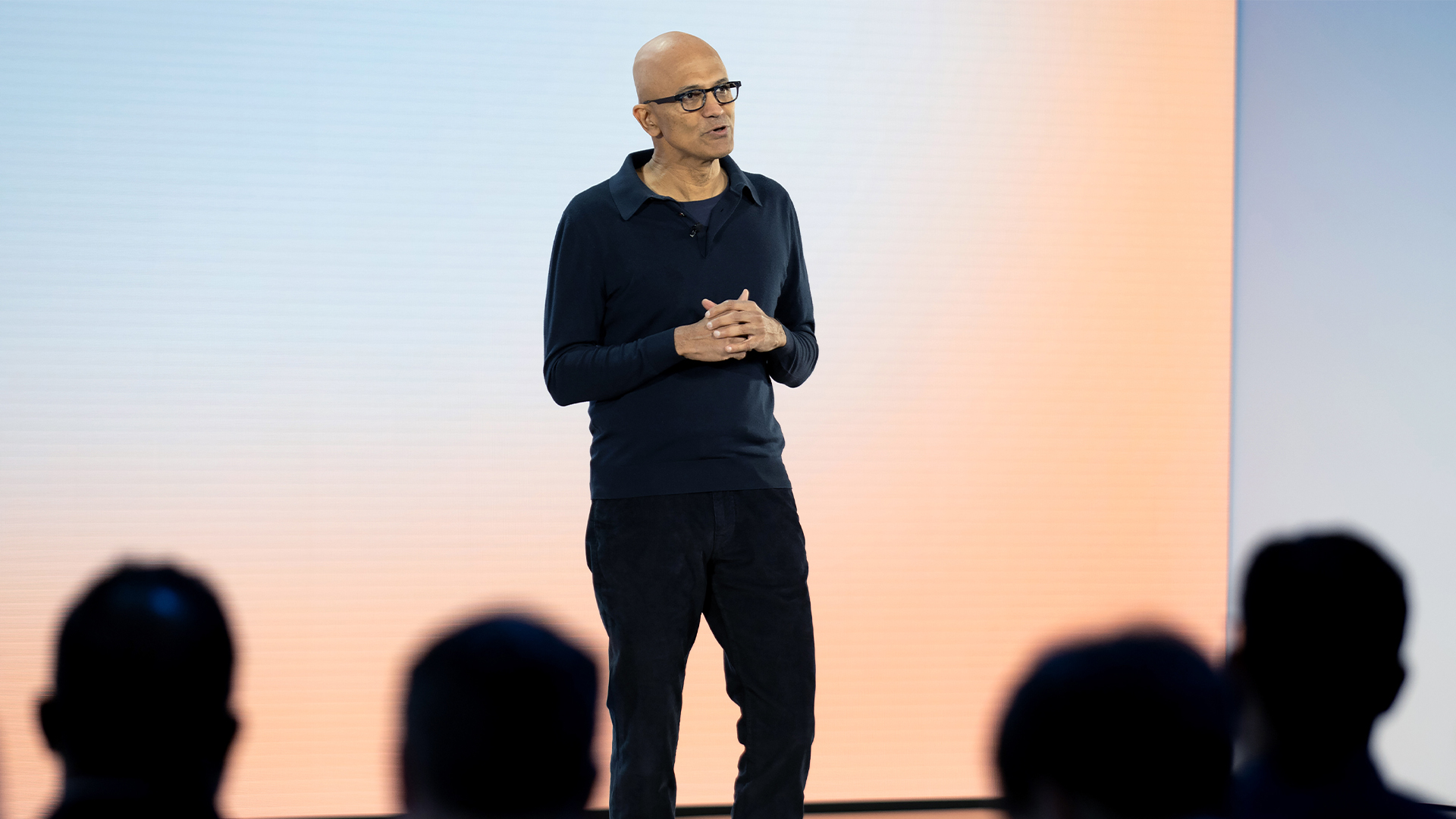

Microsoft has unveiled a new chip it says could deliver quantum computers with real-world applications in ‘years, not decades'.
Majorana 1 is the world’s first Quantum Processing Unit (QPU) to be powered by a Topological Core, designed to scale to a million qubits on a single chip.
The announcement is based on the development of the world’s first topoconductor - a new class of materials that enables topological superconductivity, a new state of matter that previously existed only in theory.
To do this, the company has designed and built gate-defined devices that combine indium arsenide - a semiconductor - and superconductor aluminum.
When cooled to near absolute zero and tuned with magnetic fields, these devices form topological superconducting nanowires, with Majorana Zero Modes (MZMs) at the wires’ ends.
"After a nearly 20 year pursuit, we’ve created an entirely new state of matter, unlocked by a new class of materials, topoconductors, that enable a fundamental leap in computing. It powers Majorana 1, the first quantum processing unit built on a topological core," said Microsoft chairman and CEO Satya Nadella.
"The qubits created with topoconductors are faster, more reliable, and smaller. They are 1/100th of a millimeter, meaning we now have a clear path to a million-qubit processor."
Get the ITPro daily newsletter
Sign up today and you will receive a free copy of our Future Focus 2025 report - the leading guidance on AI, cybersecurity and other IT challenges as per 700+ senior executives
With the core building blocks now demonstrated — quantum information encoded in MZMs, protected by topology, and processed through measurements — Microsoft said it's ready to move from physics breakthrough to practical implementation.
The next step will be a scalable architecture built around a single-qubit device called a tetron, building up to larger arrays of tetrons delivering multiple error-corrected qubits.
RELATED WHITEPAPER
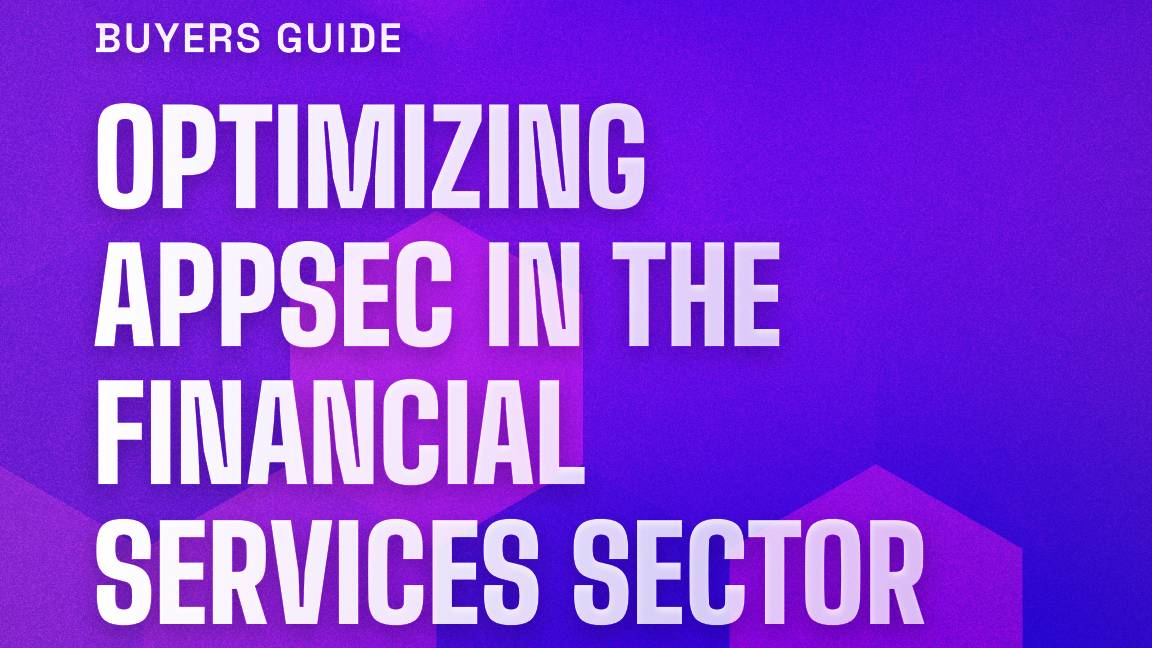
The company said it's also on track to build a fault-tolerant prototype of a scalable quantum computer over the next few years as part of the final phase of DARPA's Underexplored Systems for Utility-Scale Quantum Computing (US2QC) program.
"Together, these milestones mark a pivotal moment in quantum computing as we advance from scientific exploration to technological innovation," said Chetan Nayak, technical fellow and corporate vice president of quantum hardware.
Microsoft’s quantum timeline is a game changer
Microsoft is avoiding any specific timeline beyond its 'years, not decades' claim, and there will no doubt be setbacks along the way. But after years of hype, the prospect of quantum computers with tangible real-world applications is beginning to come to fruition.
Late last year, for example, Google unveiled a new chip, dubbed ‘Willow’, which it said could solve equations that would typically take ten septillion years in a matter of minutes.
The firm suggested that commercial applications could appear by the end of this decade.
However, some leading industry figures are more skeptical. Nvidia CEO Jensen Huang, for example, recently suggested it would probably take 20 years before useful quantum computers emerged.
Huang’s comments sparked a tumble in shares at a number of leading quantum computing companies.
MORE FROM ITPRO
- Why quantum computing might be much closer to becoming a reality than we think
- Preparing for the quantum revolution
- Why experts are warning businesses to prepare for quantum now
Emma Woollacott is a freelance journalist writing for publications including the BBC, Private Eye, Forbes, Raconteur and specialist technology titles.
-
 Bigger salaries, more burnout: Is the CISO role in crisis?
Bigger salaries, more burnout: Is the CISO role in crisis?In-depth CISOs are more stressed than ever before – but why is this and what can be done?
By Kate O'Flaherty Published
-
 Cheap cyber crime kits can be bought on the dark web for less than $25
Cheap cyber crime kits can be bought on the dark web for less than $25News Research from NordVPN shows phishing kits are now widely available on the dark web and via messaging apps like Telegram, and are often selling for less than $25.
By Emma Woollacott Published
-
 Microsoft launches new security AI agents to help overworked cyber professionals
Microsoft launches new security AI agents to help overworked cyber professionalsNews Microsoft is expanding its Security Copilot service with new AI agents to help overworked IT teams deal with surging security threats.
By Bobby Hellard Published
-
 ‘This is the first event in history where a company CEO invites all of the guests to explain why he was wrong’: Jensen Huang changes his tune on quantum computing after January stock shock
‘This is the first event in history where a company CEO invites all of the guests to explain why he was wrong’: Jensen Huang changes his tune on quantum computing after January stock shockNews Nvidia CEO Jensen Huang has stepped back from his prediction that practical quantum computing applications are decades away following comments that sent stocks spiraling in January.
By Nicole Kobie Published
-
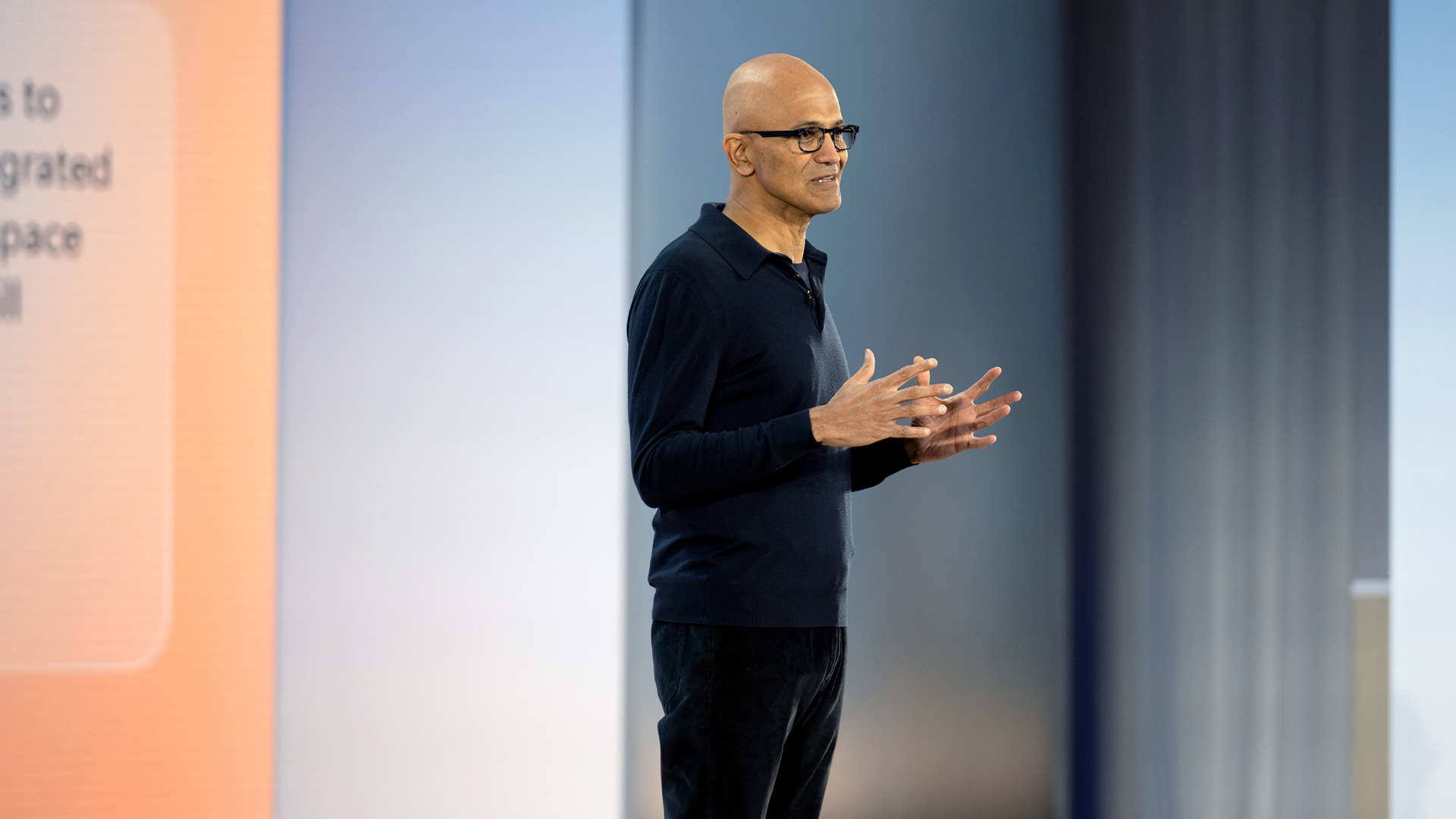 ‘The entire forecasting business process changed’: Microsoft CEO Satya Nadella says Excel changed the game for enterprises in 1985 – he’s confident AI tools will do the same
‘The entire forecasting business process changed’: Microsoft CEO Satya Nadella says Excel changed the game for enterprises in 1985 – he’s confident AI tools will do the sameNews The Microsoft CEO says we need to change how we measure the value of AI
By George Fitzmaurice Published
-
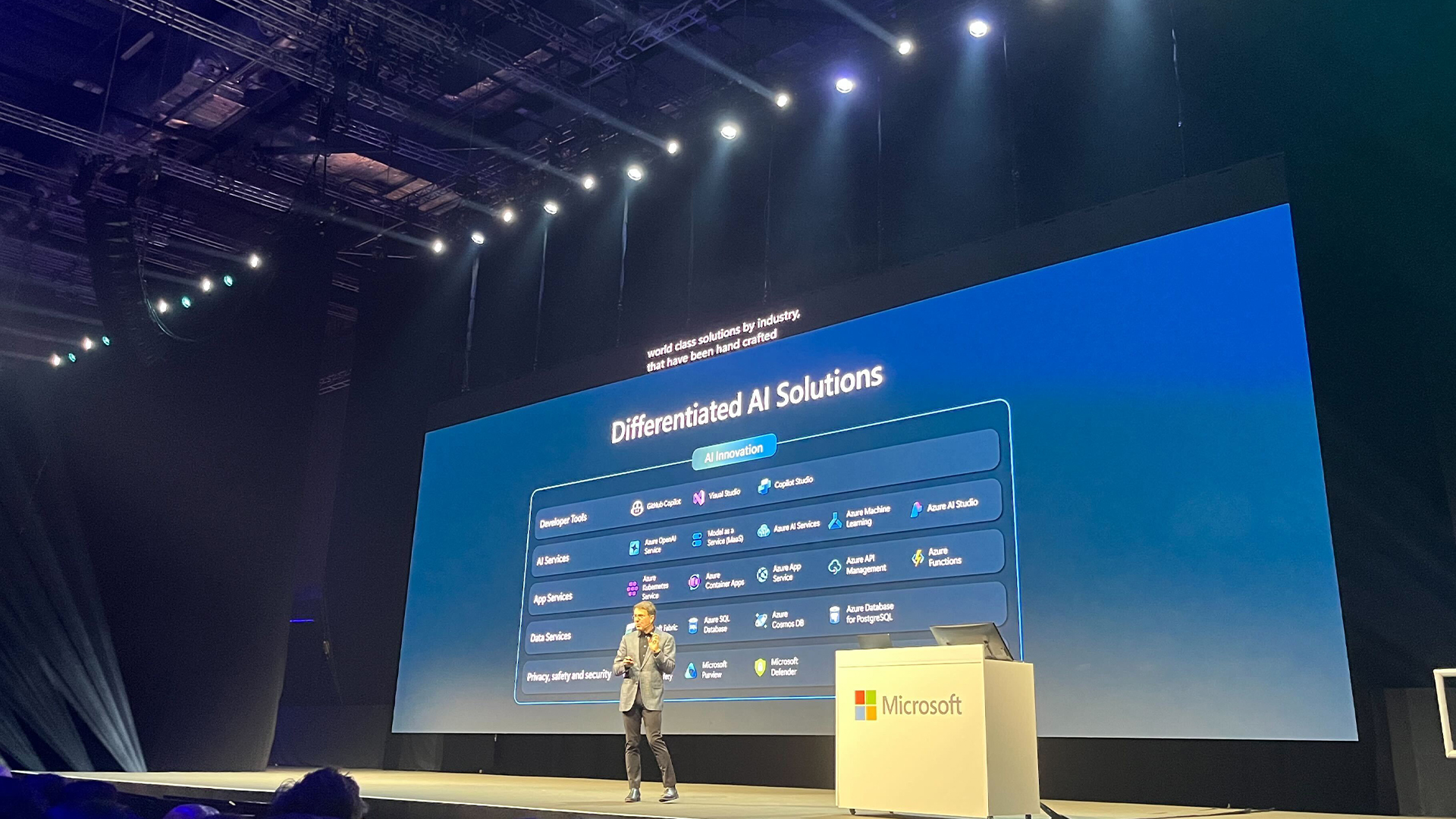 Microsoft exec touts benefits of AI productivity gains
Microsoft exec touts benefits of AI productivity gainsNews Microsoft CCO Judson Althoff said the company is unlocking significant efficiency gains from AI tools internally.
By George Fitzmaurice Published
-
 Microsoft says AI tools such as Copilot or ChatGPT are affecting critical thinking at work – staff using the technology encounter 'long-term reliance and diminished independent problem-solving'
Microsoft says AI tools such as Copilot or ChatGPT are affecting critical thinking at work – staff using the technology encounter 'long-term reliance and diminished independent problem-solving'News Research from Microsoft suggests that the increased use of AI tools at work could impact critical thinking among employees.
By Nicole Kobie Published
-
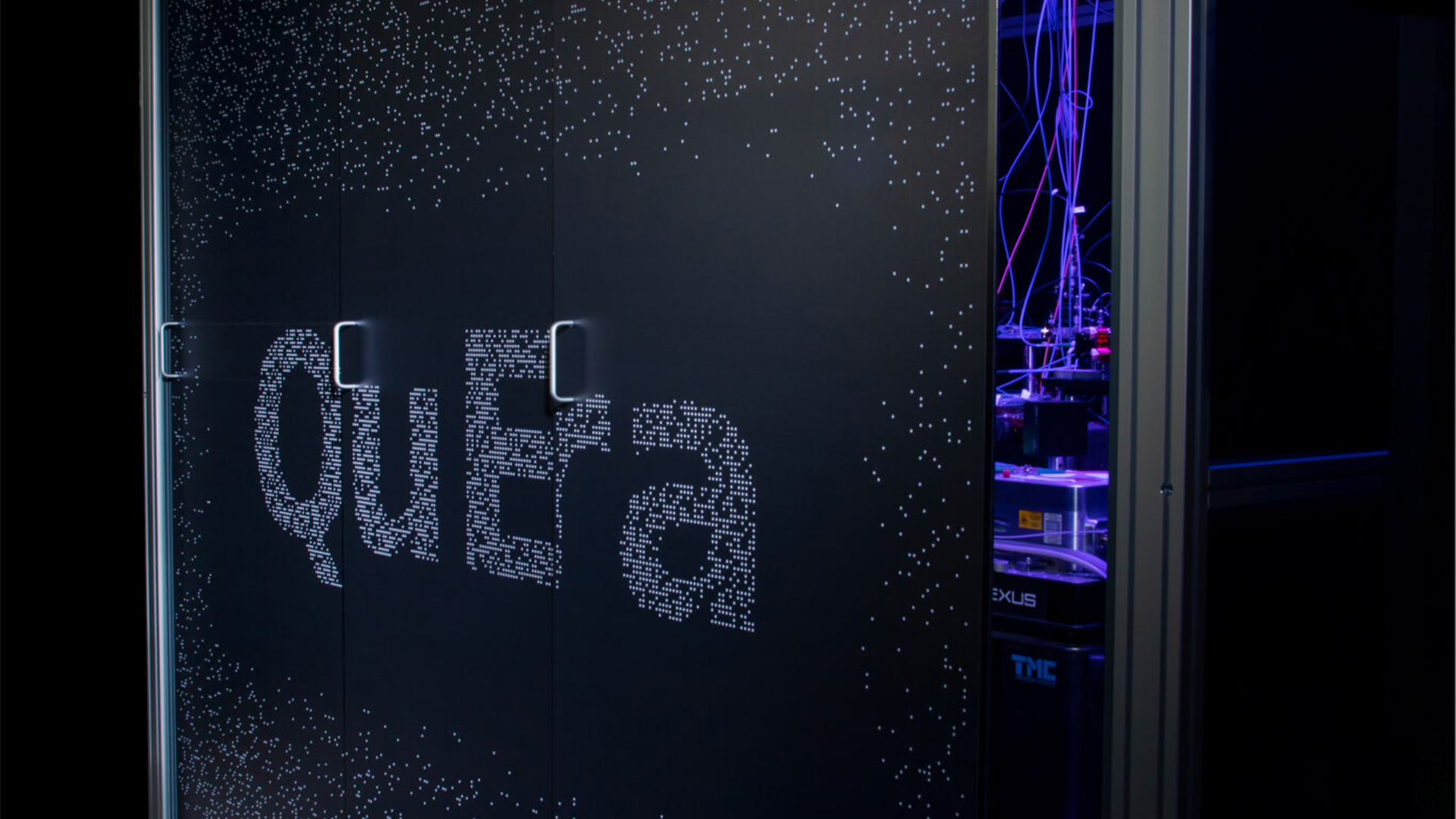 QuEra Computing just raised $230 million to pioneer “fault-tolerant” quantum computing – and it even got Google’s seal of approval
QuEra Computing just raised $230 million to pioneer “fault-tolerant” quantum computing – and it even got Google’s seal of approvalNews QuEra Computing has raised $230 million in funding to drive development of 'fault tolerant' quantum computers, receiving backing from Google and SoftBank.
By Ross Kelly Last updated
-
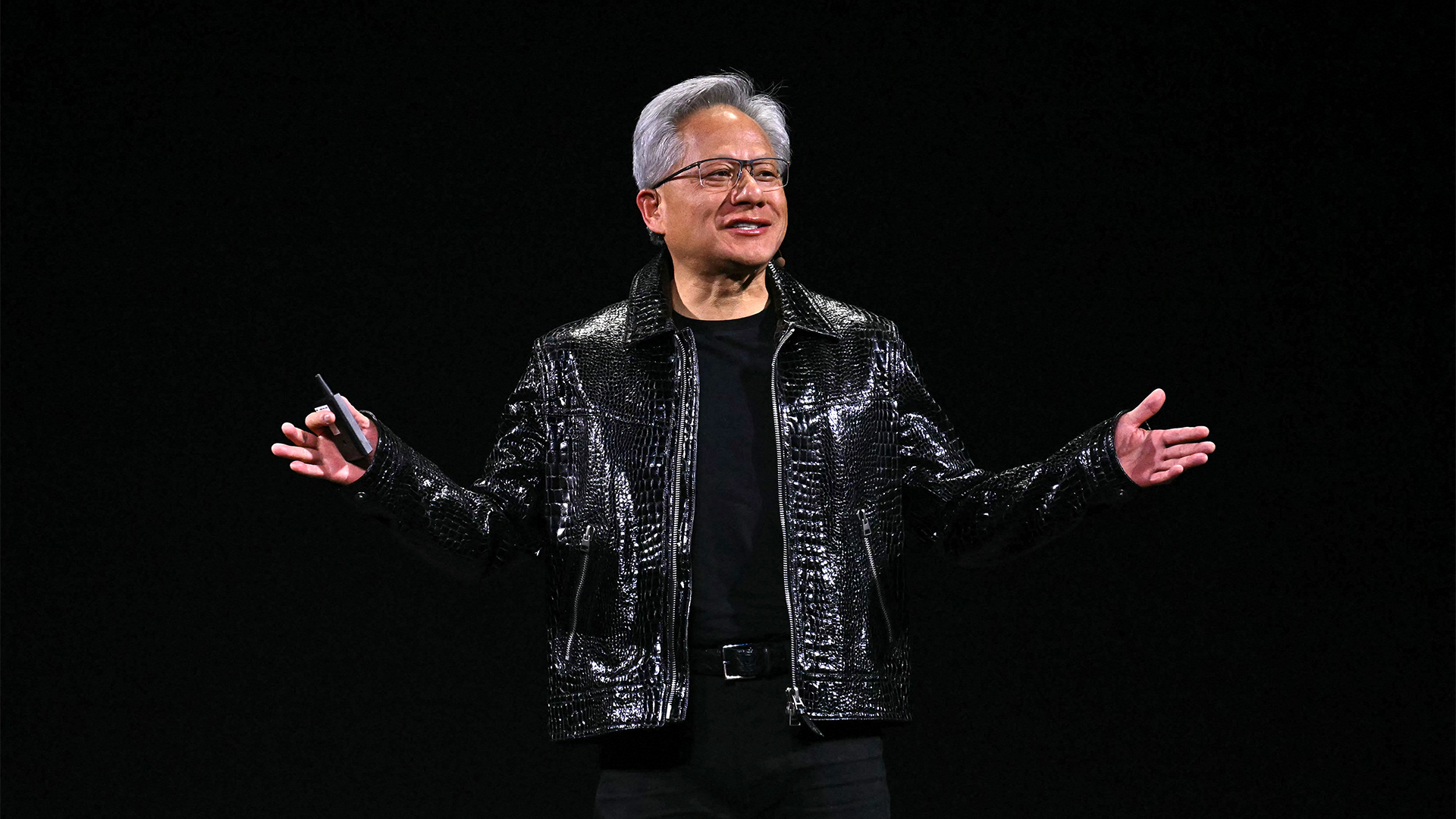 We’re optimistic that within five years we’ll see real-world applications’: Google thinks it’s on the cusp of delivering on its quantum computing dream – even if Jensen Huang isn't so sure
We’re optimistic that within five years we’ll see real-world applications’: Google thinks it’s on the cusp of delivering on its quantum computing dream – even if Jensen Huang isn't so sureNews Nvidia CEO Jensen Huang sent shares in quantum computing firms tumbling last month after making comments on the near-term viability of the technology.
By Ross Kelly Last updated
-
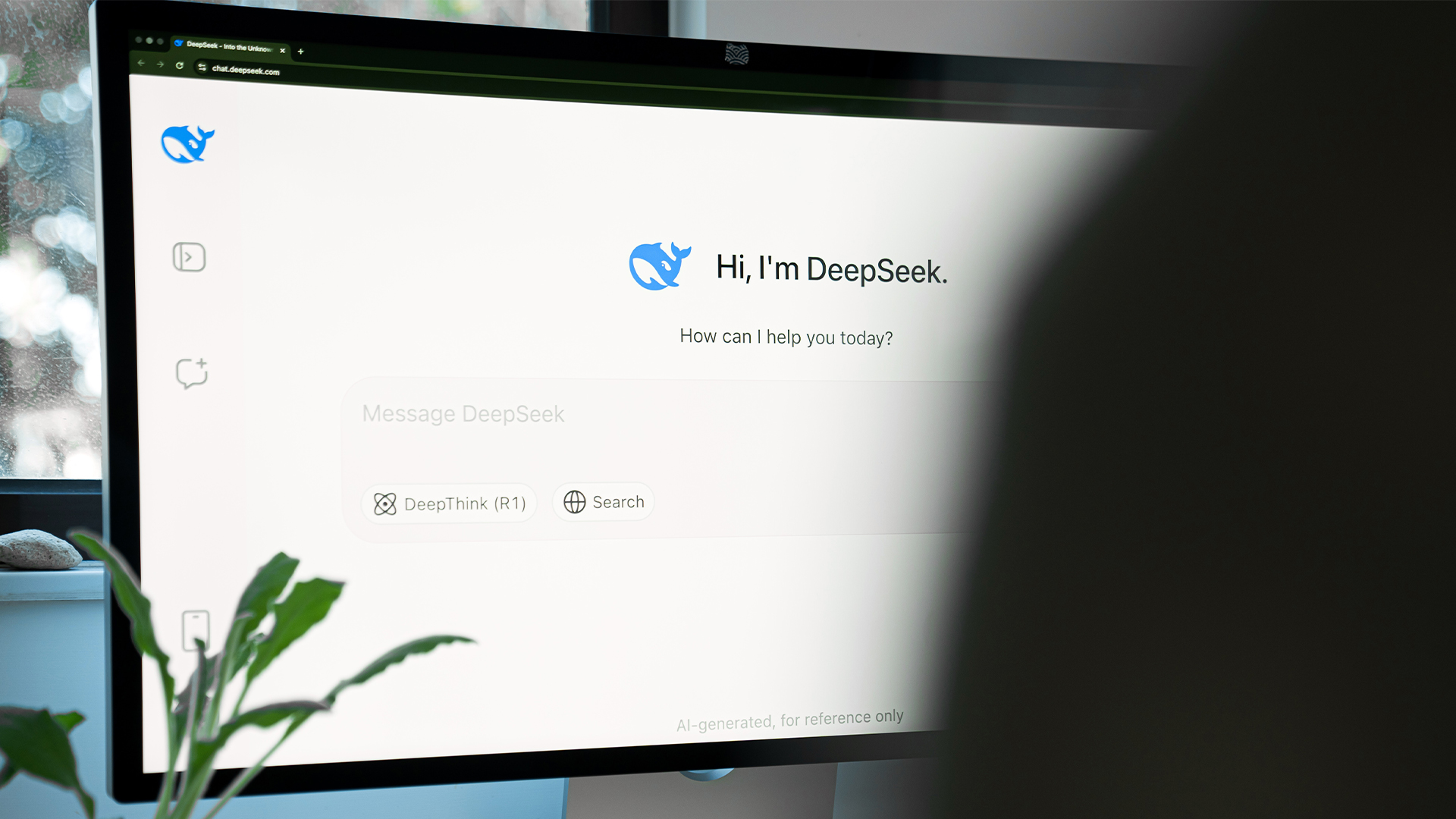 The DeepSeek bombshell has been a wakeup call for US tech giants
The DeepSeek bombshell has been a wakeup call for US tech giantsOpinion Ross Kelly argues that the recent DeepSeek AI model launches will prompt a rethink on AI development among US tech giants.
By Ross Kelly Published